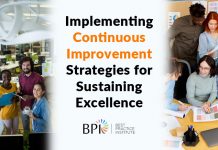A gifted leader supported by a cohesive and responsive management team can motivate, develop and empower their people for the benefit of the organization. In the age of digitization, seamless supply chains, and artificial intelligence only the agilest companies will survive and thrive.
So, who are the globe’s great leaders? Who is driving the most successful companies in their quest to grow and profit in the twenty-first century?
We investigate some of the important business disciplines. and the people who are driving the success of their companies in these areas.
Client-Centricity
The client-centric leader is passionate about the customer, about understanding their needs and wishes, and about delivering the best customer experience possible. They build a culture of customer service in their companies, ensuring that every employee is focused on the customer.
Trynka Shineman has been with Vistaprint since 2004, heading up the marketing department before she took over as CEO of the company. She has grown this global business from an organization that employed 150 employees and turned $100 million, to one that employees 7000 people and turns one billion dollars per annum. The company has twenty million customers around the world.
Several years ago, Trynka realized that rapid expansion had had a negative effect on the value proposition of her business. Quality was flagging, business practices had become complicated, and the customer interface was not as effortless as it should be. She decided to take the client-centric route, re-engineering the business processes and delivery systems, and re-inventing the company culture.
Trynka critically examined all the business processes, eradicating or simplifying them all, keeping only those practices that added value for the customer. She was determined to stick to her vision even in the face of skepticism from staff, higher than budgeted costs to implement, and extended timelines.
Trynka is the epitome of the client-centric leader, spending a great deal of time with the owners of the micro businesses that form the bulk of the customers with whom they do business. She strives to understand their needs so that she can use these insights to develop new products and delivery systems. She has developed a customer-centric culture in the organization. There is no question that Vistaprint was already a very successful company when Trynka embarked on her new vision, but the customer-centric culture has helped the business to new heights.
Agile Organizations / Agile Leadership / Transformation
In a world where even long-standing industries are disrupted by new business models, business transformation is no longer a choice. It is a necessity. When the environment is constantly evolving organizations must recognize and forecast change, embracing it, and responding to it. Agile organizations require agile leaders with the skills to manage and motivate cross-functional teams.
For years, Robert Poynton of Oxford Saïd Business School has been showing the leaders of some of the world’s biggest brands that the key to agility is the ability to teach teams to think on the move, and to react flexibly. He uses stage improvision to teach business leaders how to think on the move, and how to react to the unexpected. In this way, he hopes to teach people to be more creative in the everyday adventure that is business.
Leaders deal daily with the unpredictable and unless they learn to improvise they cannot succeed. The more complex the environment the more teams must improvise. Whilst planning should form the basis of the business, improvisation is necessary for an organization to take advantage of opportunities as they arise so that the business can thrive and prosper. Poynton is passionate about his subject matter. He has written two books on improvisation.
Empowerment
Empowered people have more control over their autonomy with more power to determine the course of their lives. Musal Hedayat knows this, and she is doing everything in her power to give UK refugees the means to change their fortunes.
She is the founder and CEO of Chatterbox, a language teaching tool that is empowering communities by harnessing the knowledge of educated refugees. With first-hand experience in how difficult it is for refugees to find work, she set up her organization to train them to teach foreign languages. Her mother, an Afghan refugee, was a Civil Engineer who spoke four languages, but was nonetheless, able to find only low skilled employment in England. Her story inspired Musal to establish Chatterbox.
Unemployment amongst refugees in the UK stands at fifty percent, despite the fact that the refugee population is better educated than the average British national. The people employed by Chatterbox are degreed people with a professional background. Chatterbox is a conversation practice service that helps to teach people a language in a way that they learn the human aspects of the tongue and culture. Musal has targeted businesses to better use the professional background of the teachers and hopes that they may grow from the teaching function to use their expertise in the businesses where they teach.
The initiative has won a number of awards and is helping refugees to become an integrated part of society. Musal plans to expand into Europe once Chatterbox is fully established in the UK.
Digitization and the leadership required to lead in the Digital Age
Digitization has become prevalent throughout our daily lives, no less so in organizations. From financial services to transportation and retail sales, everything is now executed online. Businesses that fail to take the initiative in digitizing the organization will not survive, as it becomes an integral and indispensable part of the value proposition. Digitization streamlines processes and offers the customer choices that previously never existed.
Rika Nakazawa understands this as she has been at the forefront of digitization for several years holding senior positions at several global software and hardware companies.
VP of Strategy and Business Development at Atheer, Rika thrives in this era of disruption. She is adept at analyzing problems and finding solutions. She has extensive experience in augmented reality and has been involved with start-ups and developing new business. These include large successful businesses such as Neo Innovation, Accenture, and Sony. She has filed a number of commercial patents.
Rika embraces the integration of the human with computing. She fully understands the world of computing and digitization and their connections with the real world. Atheer goes beyond digitization as it offers not just an interface but an integrated augmented reality for industrial workplaces.
Analytics/Insights; leveraging data to drive Decision Making
The mass of information available today can be overwhelming and unless companies are able to separate the anomalous from every day, they will not reap the benefits of all the available information. The cost of data analytic software continues to drop, and it is also very easily available. The software allows businesses to understand customer data, improve efficiencies and solve potential problems. Without it, businesses cannot make effective use of the large amounts of information that is available.
Luvleen Sidhu is the co-founder, President and Chief Strategy Officer of BankMobile, the first feeless online bank. Her disruptive technologies are aimed at Millenials and the sixty-eight million underbanked people in the United States. Within a year and with not a single branch her business had over one hundred thousand customers. Besides not costing anything, her application helps customers to make financial decisions by helping them to track their expenses. She started at Lehman Brothers on the day that they declared bankruptcy and this experience still drives her to use her platform to improve the financial lives of Americans.
In planning her fee-free business, she discovered that Americans had spent $32billion dollars in overdraft fees in 2014. Using her experience as a financial analyst, she spent two years gathering information about the banking sector and the customer needs before she designed the technology. She constantly engages with her customers, sending them weekly tips and communicating on social media platforms. She has won several awards for her innovative product, has co-written a book and serves as a mentor to other fintech start-ups, in the hope that new technologies will improve the market.
The Pace of Change is Exponential
The only certainty that business has in our fast-changing environment is that the pace of change will accelerate. Only agile businesses with quick thinking and motivated leaders will adapt and prosper. Computer technology must combine with motivated and empowered employees for the benefit of the organization as a whole.










